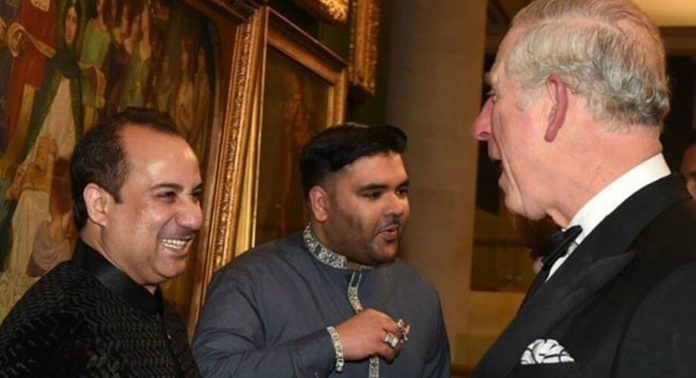King Charles III’s anti-violence organization, the British Asian Trust, has chosen to cut ties with famous vocalist Rahat Fateh Ali Khan in the wake of a video showing the famed performer violently attacking a band member. Beloved for its unwavering stance against abusive behavior, the Trust immediately denounced any violent behaviors following the examination of the disturbing footage.
A spokesman for the British Asian Trust explained the organization’s decision to end its partnership with the artist after reviewing the video footage extensively, according to the local press. The British Asian Trust has severe policies on abusive behavior and has severed all ties with Mr. Khan, according to the Trust’s spokesman. Under no circumstances will we tolerate any kind of violence.
A video from last year shows Khan slapping, kicking, and even using his shoes to physically attack a member of the band in Houston, Texas. The famous artist responded to the backlash by releasing a statement in which he clarified that the video misrepresented the scenario. He went on to say that Naveed Husnain, one of the students engaged, was embroiled in an internal controversy and that he had lost the “bottle” that held water from a spiritual leader.
Husnain, who was supposedly Khan’s student, came to the singer’s defense, saying that the video was totally behind the scenes and that Rahat had sent him an apology. He brought attention to his teacher’s affection and claimed unnamed people were trying to extort him into smearing Khan’s reputation.
The British Asian Trust, which Prince Charles founded in 2007, works to alleviate poverty and foster better community ties. The famous musician has been actively involved in activities supporting projects in South Asia since Prince Charles appointed Khan ambassador in 2017.
